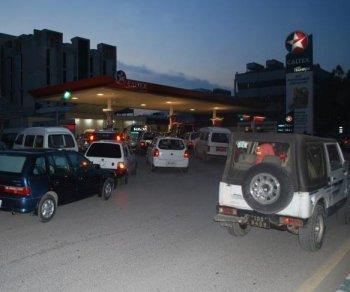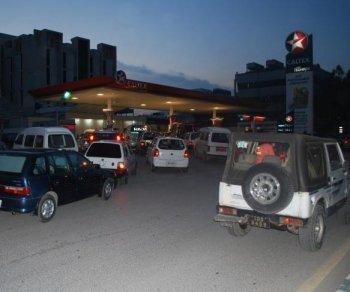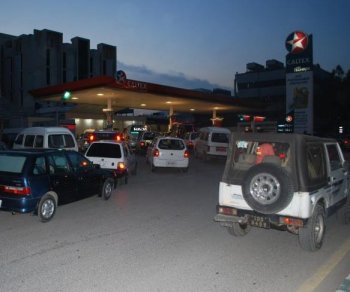ISLAMABAD—As industries close and the cost of living rises across Pakistan due to electricity cuts and gas shortages, widespread frustration is heating public sentiment to a boiling point.
“I think if this energy shortage continues, the public will get fed-up, and there are chances of an uprising like in Tunisia or Egypt, although the cause might be different,” said President of the Islamabad Chamber of Commerce and Industry Mahfooz Elahi, commenting on the potential impact of continued power shortages in the country.
The Pakistani government is imposing electricity cuts and gas rationing across the country in an effort to mitigate its energy shortage. The cuts have slowed production and increased the cost of operating businesses, forcing many small businesses to close and others to lay off workers.
The planned and unplanned electricity blackouts, known as load shedding, make daily activities a challenge for ordinary citizens across the country, leaving the populace angry and feeling marginalized.
The public believes that mismanagement by energy executives and ministry officials is a leading cause of Pakistan’s energy woes, and the vast majority of Pakistani’s blame their government officials for corruption and apathy.
Humza Sheikh, a young man who had just returned from working in Dubai, said, “We have all the resources in our country; we just don’t have good leadership. We need a person who cares about Pakistan.”
The country has the sixth largest coal reserve in the world but uses only about 5 percent for electricity. With nine to ten months of perpetual sun in the country, solar power, which the government has not yet developed, is another huge resource.
The government began load shedding three years ago and has doubled the cut-off hours over the past 18 months.
Load shedding now affects the vast majority of the population and all strata of society, from the villager to the industrialist, to varying degrees. This past winter, electric power in most places in Pakistan was shut off for six hours at various times every day.
When the cuts come according to schedule, most people are able to plan their power usage accordingly, but when power is randomly shut off, which happens every few days, Pakistanis are often left without the means to get their work done.
According to a report by Pakistan’s DAWN Media group, industry in the country lost more than $4 billion over the last 18 months due to electric and gas shortages.
Small businesses are suffering financial losses, some up to 50 percent, with load shedding in shopping centers happening at peak sales times.
“I think if this energy shortage continues, the public will get fed-up, and there are chances of an uprising like in Tunisia or Egypt, although the cause might be different,” said President of the Islamabad Chamber of Commerce and Industry Mahfooz Elahi, commenting on the potential impact of continued power shortages in the country.
The Pakistani government is imposing electricity cuts and gas rationing across the country in an effort to mitigate its energy shortage. The cuts have slowed production and increased the cost of operating businesses, forcing many small businesses to close and others to lay off workers.
The planned and unplanned electricity blackouts, known as load shedding, make daily activities a challenge for ordinary citizens across the country, leaving the populace angry and feeling marginalized.
The public believes that mismanagement by energy executives and ministry officials is a leading cause of Pakistan’s energy woes, and the vast majority of Pakistani’s blame their government officials for corruption and apathy.
Humza Sheikh, a young man who had just returned from working in Dubai, said, “We have all the resources in our country; we just don’t have good leadership. We need a person who cares about Pakistan.”
The country has the sixth largest coal reserve in the world but uses only about 5 percent for electricity. With nine to ten months of perpetual sun in the country, solar power, which the government has not yet developed, is another huge resource.
Load Shedding
The government began load shedding three years ago and has doubled the cut-off hours over the past 18 months.
Load shedding now affects the vast majority of the population and all strata of society, from the villager to the industrialist, to varying degrees. This past winter, electric power in most places in Pakistan was shut off for six hours at various times every day.
When the cuts come according to schedule, most people are able to plan their power usage accordingly, but when power is randomly shut off, which happens every few days, Pakistanis are often left without the means to get their work done.
According to a report by Pakistan’s DAWN Media group, industry in the country lost more than $4 billion over the last 18 months due to electric and gas shortages.
Small businesses are suffering financial losses, some up to 50 percent, with load shedding in shopping centers happening at peak sales times.







